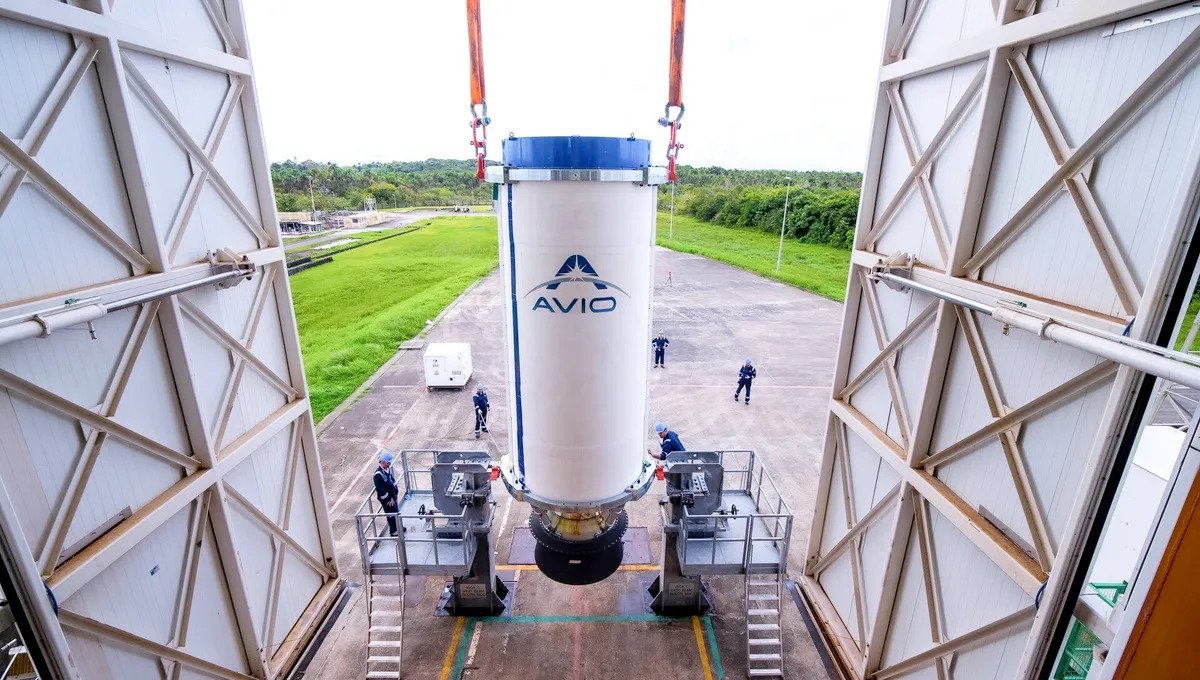The State Space Agency of Ukraine does not agree with the conclusions of the European Commission on the Vega-C carrier accident. On March 3, the ESA published a report in which it called it the reason for the lack of a part manufactured in our state.

Conclusion of the Accident Investigation Commission
On March 3, the European Space Agency published the conclusion of the commission investigating the circumstances of the accident of the new Vega-C carrier that occurred on December 20, 2022. It was a completely new modification of the carrier, which Europe had high hopes for. Therefore, this failure turned out to be very painful for the rocket industry of the Old World.
Even earlier, the commission found that the cause of the destruction of the rocket was the failure of the Zefiro 40 second stage engine. The conclusion also indicates the specific part that led to the accident and this part is made in Ukraine. Literally it is formulated as follows:
“Initial investigations, conducted right after the launch with the available flight data, confirmed that the launcher’s sub-systems reacted to the events as designed, and that the cause of the failure was a gradual deterioration of the Zefiro 40’s nozzle. More precisely, the Commission confirmed that the cause was an unexpected thermo-mechanical over-erosion of the carbon-carbon (C-C) throat insert of the nozzle, procured by Avio in Ukraine. Additional investigations led to the conclusion that this was likely due to a flaw in the homogeneity of the material.”
The report also indicated that the requirements previously imposed on the insert material were insufficient. And the material from which it was made was unsuitable for use in this engine part. You can read the full text of the conclusion at this link.
Response of the State Space Agency of Ukraine
In response to the commission’s conclusions, which actually blamed the rocket accident on Ukrainian manufacturers, the State Space Agency of Ukraine released its own statement. In it, the Agency noted that Ukraine had always been a reliable partner of the European Union in space activities, and the products produced here were of high quality.
As for the specific results of the investigation of the rocket accident, the statement states the following:
“With all due attention to and consideration for the opinion of our European colleagues from the dedicated Independent Enquiry Commission, the State Space Agency of Ukraine believes that the presented conclusions remain to be premature and may still require further investigation to identify if there could be additional factors that led to the failure of Vega C LV launch.
The State Space Agency of Ukraine believes it is important to stress that all the products delivered by the Ukrainian space industry to our European partners were completely compliant with the requirements imposed. Ukrainian specialists who participated in a certain part of investigation which they were granted access to, provided their considerations and suggestions that objectively did not find reflection in the conclusions of the Independent Enquiry Commission.
Whatever reasons could have rushed our European colleagues with the recent Statement, the State Space Agency of Ukraine encourages our European partners to perform additional analysis and considerations that would take into account other potential factors as well as suggestions diligently proposed by the Ukrainian experts.”
The full text of the statement can be found at this link.
ESA Response
The head of the ESA, Josef Aschbacher, has already responded to the statement of the State Space Agency. On March 7 , he released the following statement on his Twitter:
“More than ever, ESA is determined to pursue its cooperation with Ukraine, and stands with the Ukrainian people. The conclusions that the committee found are not a means to place blame on Ukraine or on the integrity of the Ukrainian space industry, an industry that has been gaining much deserved clout in recent years.”
Ukraine was also supported by Giulio Ranzo, CEO of the Italian company Avio. Avio is the main contractor in the production of the Vega-C rocket. At a briefing dedicated to the completion of the accident investigation, he said that the problem was not related to the war, because the nozzle was made before the large-scale invasion.
In addition, it is not the only component that the company orders for this rocket in Ukraine. So Yuzhmash produces a whole AVUM engine for it. And the fighting did not affect its delivery in any way. Therefore, he can only thank our manufacturers for their stability in a difficult situation.
General situation after the accident investigation
The overall situation remains somewhat contradictory. On the one hand, the commission found that the problem was precisely in the Zefiro 40 engine. Other modifications of the rocket, which instead use Zefiro 23 and Zefiro 9, can be safely launched.
This will significantly improve the situation in the European Space Industry, which, with the rejection of Russian carriers, is forced to rely on its own forces, or on the United States, which cannot cover its needs. But now ESA will be able to launch anything into space. Consequently, Russia will have less opportunities for blackmail.
However, the situation with the role of Ukraine in these launches remains unclear. The Europeans do not refuse our engines. But it is not about revising the commission’s conclusions yet.
According to spacenews.com
Follow us on Twitter to get the most interesting space news in time
https://twitter.com/ust_magazine
